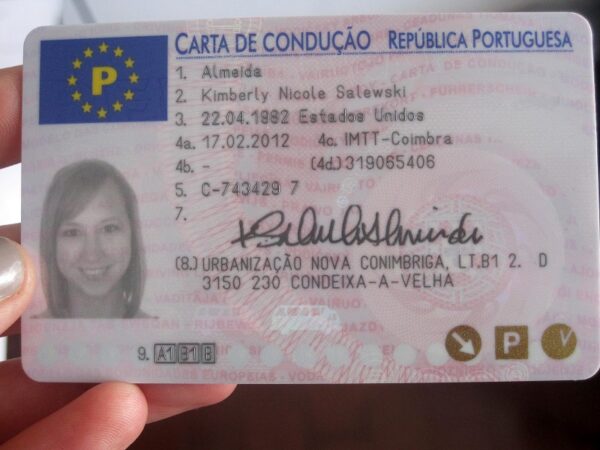Understanding the Valid Driving License: Importance, Types, and Frequently Asked Questions
A valid driving license works as an essential document for individuals wishing to operate an automobile lawfully. It not just affirms compliance with regional laws and policies however likewise makes sure that the motorist has the required skills and knowledge to navigate roads securely. This short article intends to explore the importance of a valid driving license, the different types readily available, and address often asked concerns surrounding the topic.
Significance of a Valid Driving License
A valid driving license is essential for numerous reasons:
- Legal Requirement: Most regions require individuals to possess a valid driving license when running any motor vehicle. Stopping working to have one might result in fines and legal problems.
- Safety on the Roads: A license symbolizes that the individual has actually completed required training and assessments. This assists lower mishaps brought on by inexperienced motorists.
- Recognition: A driving license often functions as a main type of recognition when needed for different purposes, including travel, banking, and age verification.
- Insurance Requirements: Many insurance coverage business require evidence of a valid driving license before providing protection. A license shows that the motorist is lawfully allowed to run an automobile, hence minimizing the risk for insurers.
- Car Registration: In numerous jurisdictions, car registration is contingent on the owner holding a valid chauffeur's license. This makes it simpler for authorities to track accountable ownership.
Types of Valid Driving Licenses
Various kinds of driving licenses are released based upon the kind of car a person is permitted to run, in addition to their age and driving experience. The following prevail types of driving licenses discovered in various jurisdictions:
| Type | Description |
|---|---|
| Class A | Allows the holder to operate heavy trucks and lorries with trailers. |
| Class B | Authorizes the operation of buses and big cars (but not trailers). |
| Class C | Routine traveler automobiles, including automobiles and little trucks. |
| Class D | Normally for motorbikes and mopeds. |
| Learner's Permit | For beginner drivers to practice under guidance, usually minimum age required. |
| Commercial License | Required for chauffeurs running vehicles for company, particularly in transportation and logistics. |
Each type of license has particular requirements and restrictions, which can differ by region. Comprehending these differences is vital for individuals planning to get a driving license.
Requirements for Obtaining a Valid Driving License
The process for obtaining a valid driving license usually involves numerous steps. Though it might vary by jurisdiction, the essential requirements frequently consist of:
- Age Requirement: Candidates should satisfy the minimum age to request a specific class of driving license.
- Composed Examination: Many areas need prospects to pass a written test covering roadway signs, guidelines, and safety standards.
- Vision Test: Applicants typically should pass a vision examination to ensure they can securely operate a car.
- Driving Examination: After completing the needed training or practice hours, prospects typically need to pass an on-road driving test showing their ability to control a lorry.
- Documents: Valid identification documents, evidence of residency, and any requirements specific to the region should be sent.
- Charges: A charge is usually needed upon application and for license issuance.
Maintaining a Valid Driving License
Once individuals acquire their driving license, it is essential to maintain its validity through correct attention to the following elements:
- Renewal: Driving licenses require to be restored regularly, usually every 4-10 years depending on the state or nation.
- Upgrading Personal Information: Changes in individual details (such as name or address) need to be reported to the licensing authority to keep the records accurate.
- Observing Driving Regulations: Adhering to traffic laws and regulations is vital to avoiding fines or revocation of the license.
- Dealing With License Suspensions: If a license is suspended due to offenses, it is essential to comprehend the terms of reinstatement.
Often Asked Questions
1. What should I do if I lose my driving license?
If you lose your driving license, report it to the local licensing authority to look for a replacement. Remember that you may require to provide identification and pay a cost.
2. Can I drive with an expired license?
Driving with an expired license is illegal in the majority of jurisdictions. It is very important to renew your license before its expiration date.
3. How long does it take to obtain a driving license?
The timeline depends on various elements, consisting of the applicant's preparedness and the jurisdiction's waiting times for tests. Generally, it can vary from a few weeks to several months.
4. Do I need a permit before getting a full license?
Yes, many areas require brand-new motorists to first obtain a student's authorization, permitting them to practice driving under the supervision of a licensed adult.
5. Exist constraints for novice chauffeurs?
Yes, beginner drivers frequently face limitations, such as limitations on guests and nighttime driving, to ensure safety while they get experience.
A valid driving license is an important document that not just empowers individuals to run cars lawfully however likewise ensures safety on the roadways. Understanding Cartão Expresso De Portugal of licenses, the requirements to obtain one, and how to keep its validity is vital for every potential motorist. By adhering to local policies and guidelines, individuals can guarantee that they stay lawfully licensed, boosting roadway safety and compliance with the law.

